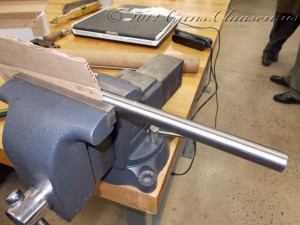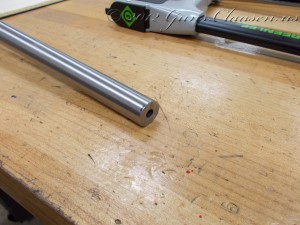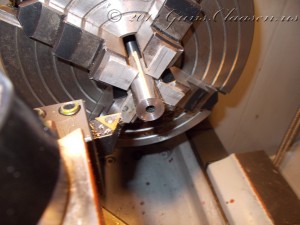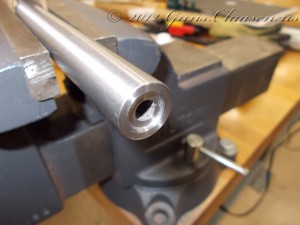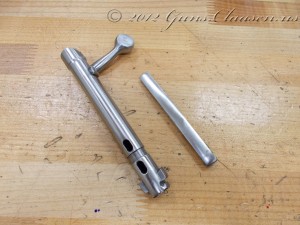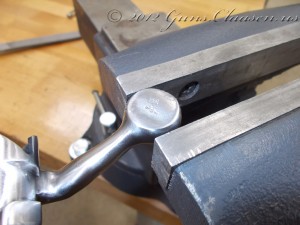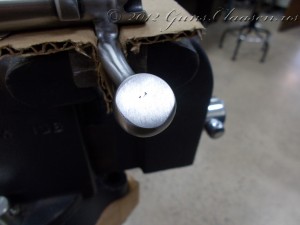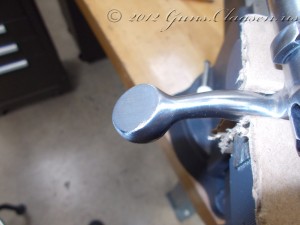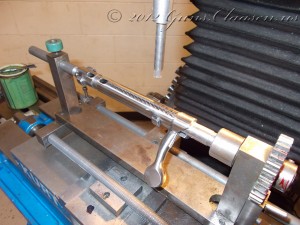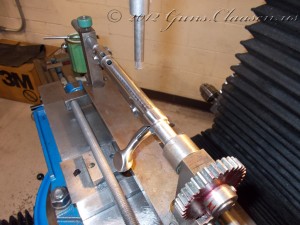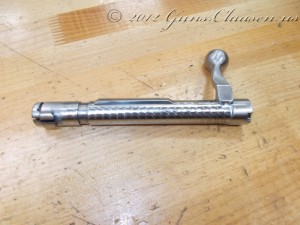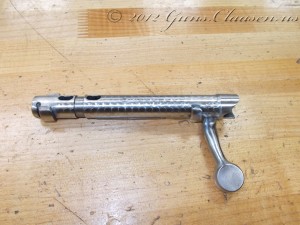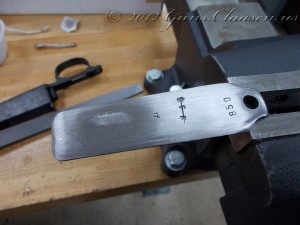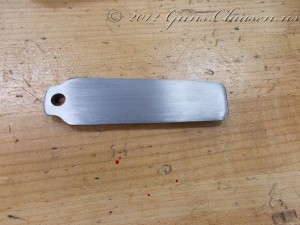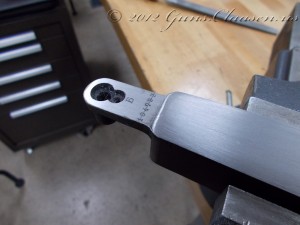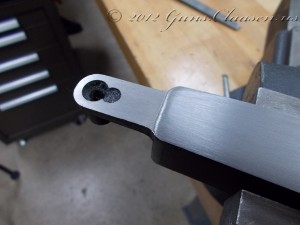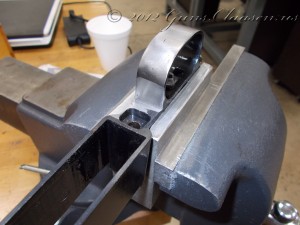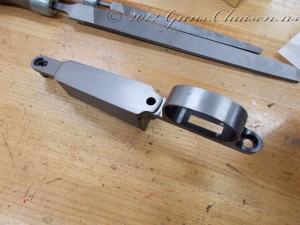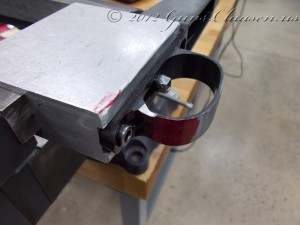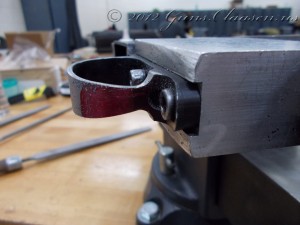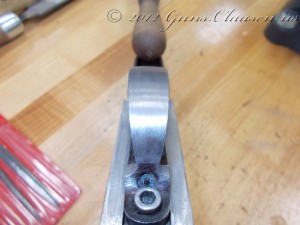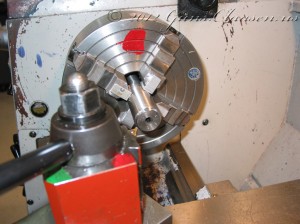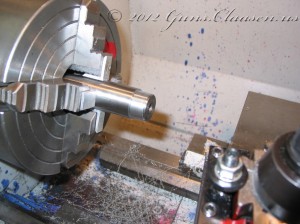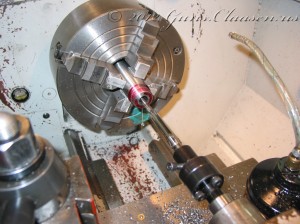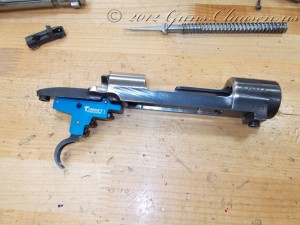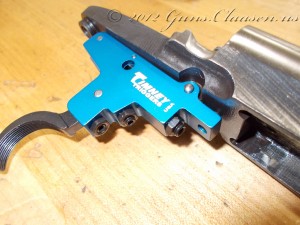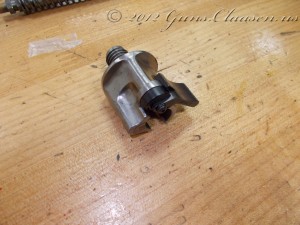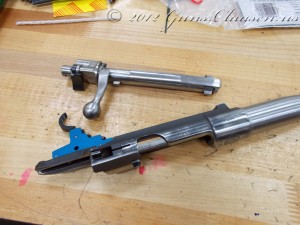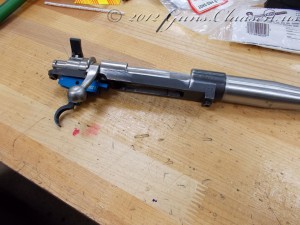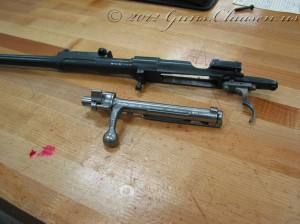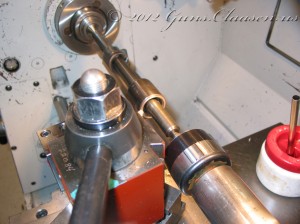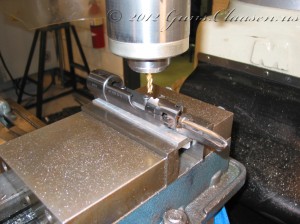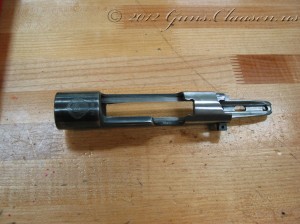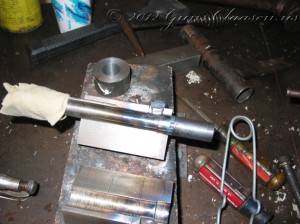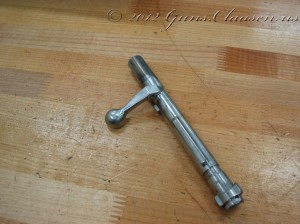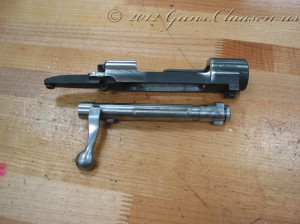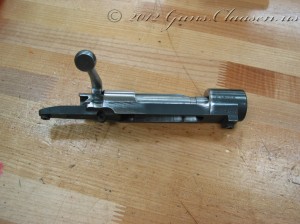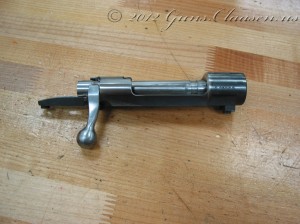Mauser
 Mauser: Bolt work
Mauser: Bolt work
I am slowly getting to the end of the work on the Mauser project for semester two. This time, I am tackling the bolt. The first project is to remove the stamping marks from the bottom of the bolt knob. I did this by drawfiling until all the stamping marks were removed.
The next project on the bolt is to jewel the bolt body. This is purely for decoration. It can be done in a few ways. Most of my class mates used a jewelling brush and lapping compound. I decided to use a “Cratex” rod. It is a rubberized abrasive rod. I also made the tool that is used to hold it. This is a long process and took me most of the day to do.
In the end, the time was well spent.
I the next post on the Mauser, I will cover the barrel crown.
 Mauser: Metal work
Mauser: Metal work
It is time to post some more work on the Mauser project. The original M48A model that I started with comes equipped with stamped bottom metal pieces to save money during manufacturing. Unfortunately, these parts can not be customized and I sourced some parts from the M48 model. These were all old military surplus items and needs to be cleaned for use on this rifle. I started by getting rid of the stampings and dents in the magazine floorplate.
The next part that needed attention was the bottom metal itself. Again, I needed to get down to clean metal. This is done by drawfiling the metal. It gives a very smooth finish and it is easy to keep the surfaces that is filed flat.
On the other side of the bottom metal I tackled the trigger guard. First I removed a hump at the front of the guard. The next step was to remove all the dents and scratches in the trigger guard itself.
The next step for the trigger guard was to give it a more appealing shape. On military rifles, the looks are not important. On a custom hunting rifle, looks go a long way.
At this time, I will most likely not touch these parts until I start doing the polishing work needed when the rifle is blued in our last semester. In the next post I will show some more of the work I did on the bolt.
 Mauser project: Barrel, trigger and safety
Mauser project: Barrel, trigger and safety
As our semester is winding down, I am still playing catch up on posting my projects. Today, I will update some of the work I did on the Mauser. After completing work on the receiver and bolt, I am turning my attention to the barrel, installing a new trigger and a low position safety. I clamped the barrel and centered it in a 4-jaw chuck on the lathe.
After facing the barrel, I cut the tenon.
I then cut the threads needed to attach the barrel to the receiver including a relief cut at the shoulder part of the tenon. This is to ensure the receiver fits tightly onto the barrel. I verified that the face of the barrel was also touching inside the receiver. In the picture, I am busy reaming the chamber (.257 Roberts). The red marks you see is a marking fluid that I used to ensure all the metal surfaces that should make contact with each other is in fact doing so.
With the barrel chambering complete, I turned my attention to the action. First, I installed a Timney Sportsmen trigger. I also installed a Beuhler-style low safety.
Once I completed this, I attached the barrel.
The next step for the action is to test fire it and check that the case expansion is good. I also have some other metal work to do and I will cover that in a future post.
 Mauser project: The beginning
Mauser project: The beginning
Even though the course require that I build a minimum of three rifles, an additional requirement is that one of these must use a military surplus Mauser action. There is many options available that can be used and the one I chose was M48A Mauser. These were built in Yugoslavia by Zastava and is a version of the FN designed Mauser Model 1924. Thank you to Matt for selling me the rifle for this project. I hope you like what I am doing with it. The rifle was in good condition and as I started working on it, realized that it had been refinished by an arsenal and had not seen much use since then. The only part of the old rifle that I need is the action and the bolt. I am building this rifle as a hunting rifle and when finished, will be chambered in .257 Roberts and have a one-piece wood stock made by me.
Please note that this work took place earlier this semester.
I started by disassembling the old rifle.
Then the action was mounted in a lathe and trued.
On the M48A action there is a bump on the rear of the receiver. It has a slot where cartridges on stripper clips can be inserted. However, this just does not look good. I removed the hump and smoothed the metal work.
Although the stripper clip slot can still be seen, I am leaving it as such for the time being.
My attention then turned to the bolt. I started by heating the bolt handle and forging it into a new, more graceful shape. The picture also shows two tools I made in the first semester. Screwed in the back of the bolt is a bolt mandrel which (in this case) helps to draw heat away from the bolt body. The bolt sits inside a bolt bending block.
The next picture was taken during the process. I still needed to sweep the handle backwards a little.
The next three pictures show the bolt handle after I swept the handle back, the receiver and how they fit together. I had to cut a small notch in the receiver body to allow the bolt to fully close.
So far, so good!
